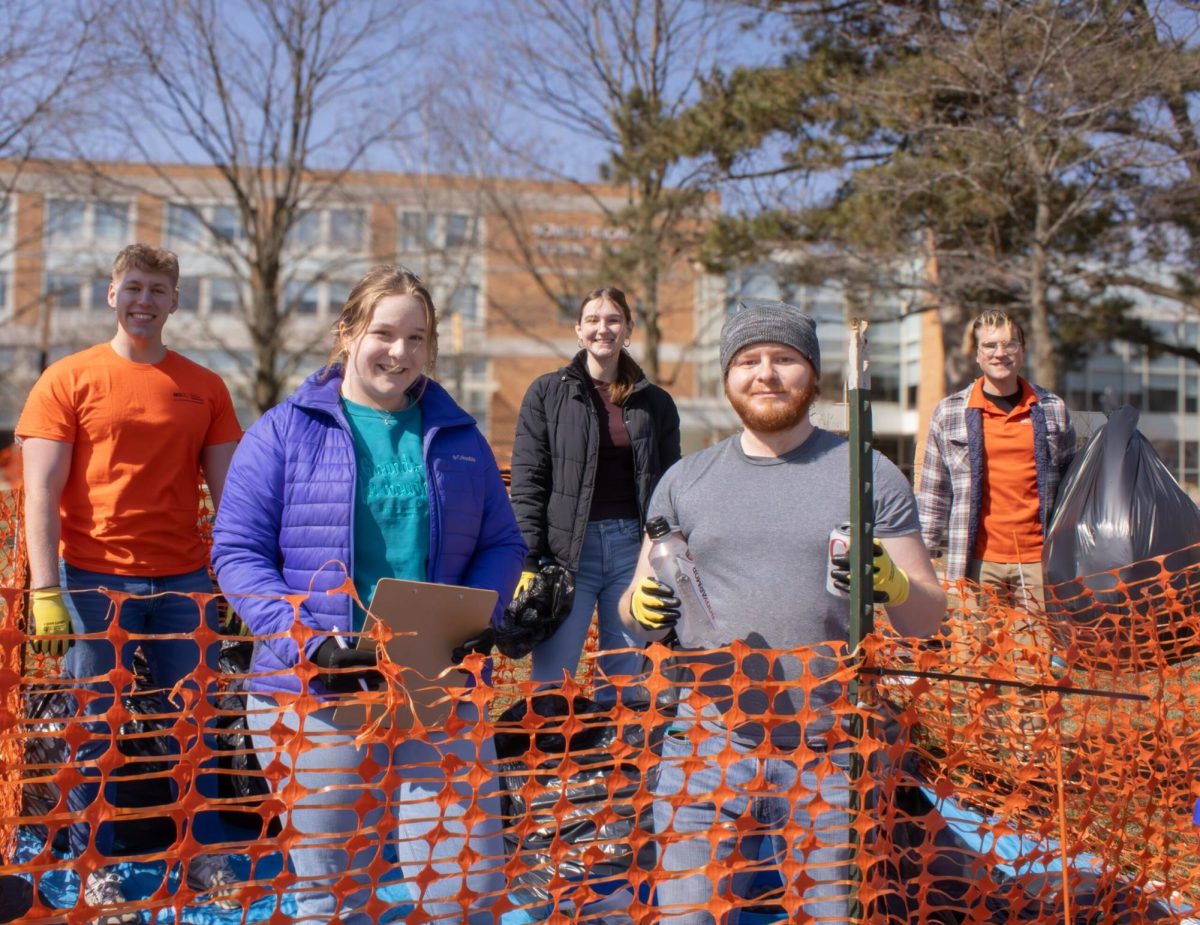Dean Simon Morgan-Russell reflects on his path to BGSU
Photo of Dean Simon Morgan-Russell
March 31, 2023
On the dawn of the 10th anniversary of Bowling Green State University’s Honors College, Dr. Simon Morgan-Russell, the college’s first dean, said he is thrilled with what he and his team were able to create.
The Honors College at BGSU is a specialized program aimed to push academically driven students to do their best, and Morgan-Russell, who helped develop the college back in 2013, believes the college is doing exactly what it set out to do and more.
The college was created with the intention of fostering student growth, and Morgan-Russell believes those benefits are why current students have such high success rates and why incoming students should consider applying to the Honors College at BGSU. Morgan-Russell said his life path directly led him to work here, and in his 29th year at Bowling Green, he said he wouldn’t want to be anywhere else.
Q: What interested you in becoming the dean of the Honors College? What in your life led you to this job at this university?
SMR: My graduate degree was from a private school, and I taught there for five years. The students were great, but they were from a very limited socioeconomic background, and those aren’t my sort of students. I was a first-generation college student, and nobody else in my family after me has been to college, so for me to be able to go to college, get a degree and change my life was a huge opportunity. Working for Bowling Green and staying here for 29 years represents my way of paying back that opportunity; it’s a state school, and many here aren’t able to afford to go to school elsewhere. This is why working with the Honors College is especially important to me. It provides a college education for high-achieving students who could go to any institution in the U.S. if they could afford to do so. It’s an investment to give back to work in a unit such as this. It’s really the main drive of my mission as dean.
Q: What people might not know about you is that, along with your administrative role as the dean, you’re also a professor of an honors class. With that in mind, which do you prefer: your administrative position as the dean or your more hands-on role as an honors professor? Do you think you have a different perspective on the impact the Honors College has on students because you’re both an administrator and a professor for honors classes?
SMR: Hands down, I always have my best time when I’m in a classroom. This is difficult because as a dean, your main focus is supposed to be your administrative work. I don’t get time off to teach, and I don’t paid more to be a teacher, but for me, there is a sense of personal satisfaction in being able to continue to teach students. I am a teacher; that’s how I got into this business to begin with, and it’s the sort of thing that I am just not ready to give up. It is a core identity of mine, and so I said when I became dean, that if I still can teach, I have to do it. I would argue that being in the classroom is very important for administrators. Administrators who
haven’t been in the classroom for 10 or 15 years are making decisions regarding student life, and I think without a continuation of teaching, they fall behind and don’t have a real concept of what the modern student’s needs are. I feel the responsible thing to do as an administrator is to know who the students are, and if you don’t teach them, you don’t know who they are. Being a teacher as well as an administrator gives me a more responsible understanding of student needs.
Q: What are the benefits, academic or otherwise, for someone coming into their freshman year at BGSU to consider joining the Honors College?
SMR: We obviously have a lot of listed benefits that we advertise, and I think that they’re all true. We have smaller class sizes, which I think are extremely important. If you take an honors version of an introductory level course, the depth in which you learn and the individual focus on the student improve greatly. There is a tangible difference. Everybody loves to talk about priority registration, and that’s important too, but more importantly, we do think that honors students can find a community within the Honors College. It’s easier for students to find like-minded peers, and it creates an environment in which people want to stay. Not only that, but the staff system is extremely supportive of its students. Our offices are all in Founders Hall where most of the honors students live, so it is extremely easy for students to come in and ask questions about almost anything. Students who join the Honors College statistically stay at BGSU more than non-honors students, and I think that’s because of the atmosphere we’ve created.
Q: What is the process like for incoming freshmen in the Honors College from your perspective? What aspects of the process do you oversee as the dean, and what do the administrators of the Honors College like yourself look for in potential students?
SMR: One of the jobs that we do that takes up an awful lot of our time in the fall is reading applications. There are a lot of different components to those applications – more than a normal university application – so I, and a lot of the Honors College staff, spend a lot of time looking through those. We looked through over 1,200 applications this fall. We do all that, but we also have to recruit students for our scholarship programs. There are application processes on top of application processes, and we do a lot of interviews. When we finally admit people, I feel it’s important for us to write a handwritten note on every admissions letter because we are proud of the fact that we forge personal connections with honors students. We try to be there to support your particular circumstances, and it’s really about the community of honors. Because of this, in terms of what we look for in potential students, we look for an indication that you want to be part of this community and that you care about academic work. Sometimes people’s grades aren’t exactly where they need to be, but they can still get in if they demonstrate in their written essays that they show a desire to be academically challenged and participate in what we do here in the Honors College. That to us is much more important than any score on any standardized test.













